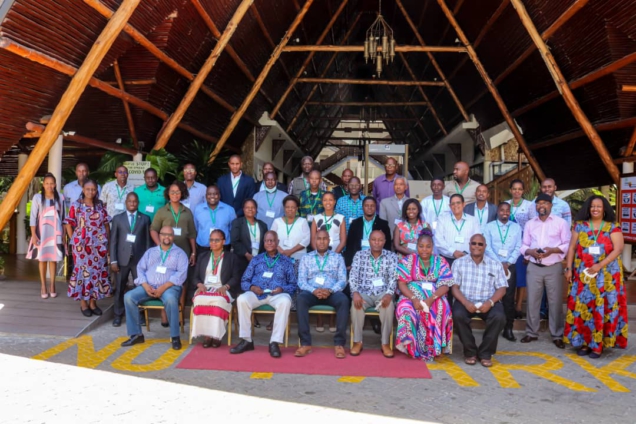Only a few countries in sub-Saharan Africa can meet their planting material requirements, let alone planting material, to take advantage of regional and global programs.
This is because most of the seed collected from natural stands and remnant trees scattered in farmlands is the main source of planting in many African countries, but there is clearly an insufficient supply of seeds from native species in these countries.
The Executive Secretary of the African Forest Forum, Professor Godwin Kowero, explained that tree seed markets are also limited to smallholder farmers, non-governmental organisations, private forestry companies, and national governments as key stakeholders in the production of seeds and seedlings as well as selling excess germplasm for tree planting.
Germplasm is a seed, plant, or part of a plant used in crop selection, research, and conservation efforts. Plants, seeds, or cultures are germplasm when kept for the purposes of studying, managing, or using the genetic information they possess. Its maintenance involves seed germination testing and viability monitoring. Germplasm samples for storage are multiplied mainly during the post-rainy season to obtain better quality seeds.
Seed stored in a genebank becomes progressively less viable during storage. The gene bank tests the viability of fresh germplasm sample seeds and monitors seed viability at regular intervals based on initial viability, storage type, and cultivation.
These periods vary between eight and 25 years for active collection and 10 to 30 years for basic collection.
Lack of trained staff and lab facilities in many countries, according to Prof Kowero affects the genetic improvement of trees.
"Further, there is a widespread lack of trained personnel and laboratory facilities in many countries leading to inadequate attention being given to the genetic improvement of trees.''
Prof. Kowero also deplores the lack of a quality control system for the production of genetics to distinguish improved seeds from wild seeds.
According to him, many countries have cut investment in forestry research and development in the breeding and deployment of trees, causing the use of low-quality tree germplasm for planting as well as the minimal operation or even closure of national tree seed centres.
"It is, therefore, critical importance that Africa secures the production, distribution, and use of quality germplasm of known origin to safeguard the development of a successful forestry sector," he said.
He indicates that inappropriate germplasm will jeopardise the whole forestry industry.
Prof Kowero was speaking at a regional workshop on sharing of information and experiences in Mombasa, Kenya on a theme, “Sharing Information and Experiences on Challenges and Opportunities in Forest Management for Sustainable Development in Africa in the Context of Climate Change.”
Latest Stories
-
Change is the only constant – Sam Jonah urges graduates to embrace AI
3 hours -
Usyk beats Fury via split decision to become undisputed heavyweight champion
3 hours -
‘Heroism is not exclusive to men’ – Sir Sam Jonah calls for gender parity in leadership
3 hours -
Sam Jonah’s graduation address highlights role of youth in overcoming global issues
4 hours -
Ghana offers African Americans a path to healing and reconnection – Sam Jonah
4 hours -
Raymond Anokye Asante scores brace as Udinese U19s beat Napoli on penalties
4 hours -
GPL: Berekum Chelsea come from behind to beat Asante Kotoko
5 hours -
CAF African Schools Football Championship finals 2024 to be staged in Zanzibar
5 hours -
Ghana’s Emmanuel Dogbevi honoured with prestigious African Capacity Building Foundation Award
6 hours -
Chelsea win fifth straight title as Hayes signs off in style
6 hours -
AAFCON 2024: Black Challenge players leave for Egypt to defend title
6 hours -
MTN Ghana celebrates World Telecommunication Day with a renewed commitment to digital innovation
6 hours -
Leverkusen make Bundesliga history by ending season unbeaten
6 hours -
Pan African Media Lawyers Union launched to safeguard journalists’ rights at 3rd African Media Convention
6 hours -
Defe Defe: A ‘Testimony’ that Ghanaian gospel music can lead too – A Review
7 hours

